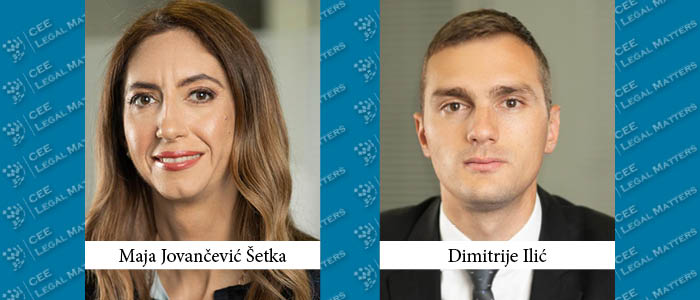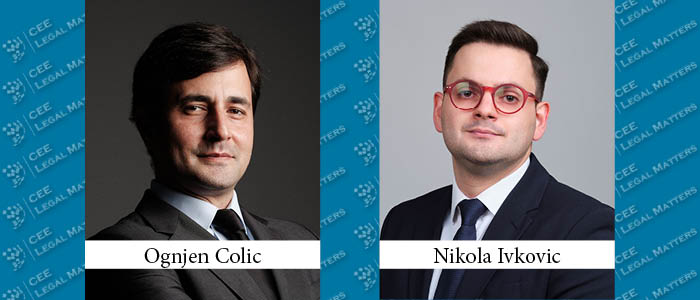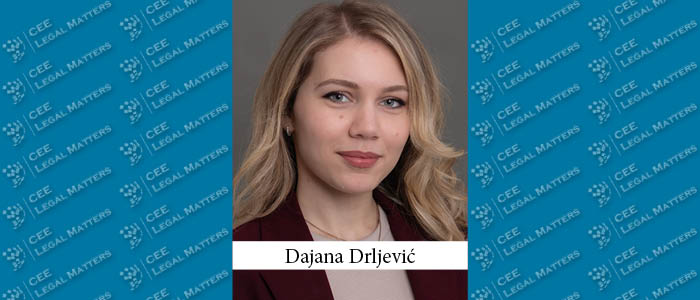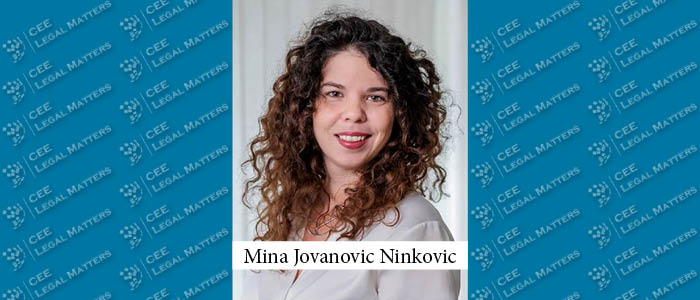The Parliament of the Republic of Serbia recently adopted amendments to the Law on Payment Services (“Law”) that will start to apply from 6 May 2025 (“Amendments”). By the Amendments, the Law is harmonised with the EU’s PSD2. The key goal of the Amendments is the enhancement of innovations on the market and securing increased competition and transparency in the area of payment services, as well as better protection of payment services users and payment security. Below we provide an overview of the main novelties brought by the Amendments.
The Corner Office: Onboarding Clients
In The Corner Office, we ask Managing Partners at law firms across Central and Eastern Europe about their backgrounds, strategies, and responsibilities. With managing firm clients being a critical aspect of firms’ operations, we asked: What are the three most important elements when onboarding a new client?
Serbia: EXPO Belgrade 2027 and the Role of PPPs in Infrastructure Development
Serbia’s booming construction sector and ongoing infrastructure projects establish it as a vital economic hub in the region. In 2023, construction works valued at over EUR 5 billion contributed around 5.5% to the national GDP. The country’s strategic location and ambitious infrastructure plans have attracted significant foreign investment. With projects like highways, railways, and energy facilities underway, Serbia is strengthening its position as a critical economic connector in Southeast Europe.
Environmental Protection Charge in Case of Business Activities Conducted in Multiple Local Government Units
In accordance with the Law on Charges on Usage of Public Goods (“Law“), the Government of the Republic of Serbia, in April 2024, adopted the Regulation on Criteria for Determining Activities that Impact the Environment and the Amounts of Fees (“Regulation“).
DNVG Joins Visegrad Legal
Serbian law firm DNVG Attorneys has joined the Visegrad Legal network.
Schoenherr Advises on Austrotherm's EPS Insulation Business Acquisition Clearance
Schoenherr has advised Austrotherm GmbH on the merger control filings for the acquisition of the EPS insulation business unit of the Austrian insulation manufacturer Brucha.
Schoenherr Advises BlackPeak Capital and Catalyst Romania Fund II on Leanpay Funding
Schoenherr has advised BlackPeak Capital and Catalyst Romania Fund II on a EUR 10 million Series B funding for Leanpay.
NKO Partners Advises CTP on Another Novi Sad Land Acquisition
NKO Partners has advised CTP on its sixth land acquisition in and around Novi Sad, with the latest acquisition from 11 different individuals taking place in the Kac industrial zone.
Trademarks in International Trade: 5,000 High-Quality Athletic Sneakers
What do Panama, the Netherlands, Latvia, and Serbia have in common? A shipment of over 5,000 high-quality athletic sneakers travelled through these countries before being halted at customs over authenticity concerns.
Bankruptcy – Consequences on the Course of the Civil Proceeding
As a result of major market changes, business entities more often suspend their operations and become insolvent, during which arises the question of the collectability of the claims of their creditors and associates, as well as persons who are in other relationships with such insolvent business entities.
Three New Partners at ZSP Advokati
ZSP Advokati has promoted Jasna Milosavljevic, Jelisaveta Stanisic, and Nikola Sugaris to Partners.
Schoenherr Advises Fortis Energy on Acquisition of Solar Power Plant in Sremska Mitrovica
Moravcevic, Vojnovic and Partners in cooperation with Schoenherr has advised Fortis Renewable Energy on the acquisition of a 180-megawatt solar power plant in Sremska Mitrovica, Serbia.
MMD Advokati and Stanivuk & Manasijevski Advise on Vantage Leasing Sale
MMD Advokati has advised APS Quattro Holding on the sale of Vantage Leasing to Alta Banka. Stanivuk & Manasijevski advised Alta Banka.
BDK Advokati Advises Seyfor on Acquisition of M&I Systems
BDK Advokati has advised Seyfor on the acquisition of 70% equity in the Serbian IT company M&I Systems. Stanivukovic reportedly advised the sellers.
Trademark Triumph: Landmark Profit Surrender Ruling In Serbia
Serbia’s 2020 Trademark Law introduced a novel provision to local law: the trademark holders have been explicitly empowered to claim profit surrender in cases where the infringement was not intentional or grossly negligent.
Two Gun-Jumping Investigations Launched by the Serbian Competition Commission
On 14 June 2024, the Serbian Competition Commission (the “Commission”) initiated two proceedings against companies belonging to the Agromarket Group for allegedly implementing notifiable concentrations without obtaining prior approval from the Commission. The acquisitions occurred in 2020 and 2024 and both concern targets located outside of Serbia.
Kinstellar Advises Strickland Metals on Zlatna Reka Resources Acquisition
SOG in cooperation with Kinstellar has advised Strickland Metals on its acquisition of Zlatna Reka Resources Beograd-Vracar. MPartners Legal reportedly advised the sellers.
Dissecting CEE Disputes
ACI Partners Managing Partner Igor Odobescu, Nagy es Trocsanyi Founding Partner Peter Nagy, Kinstellar Partner Radovan Grbovic, Law Office Vujacic Partner Sasa Vujacic, and Tuca Zbarcea & Asociatii Partner Robert Rosu discuss recent litigation trends across CEE, driven by the impact of economic shifts and regulatory changes in their jurisdictions.




















